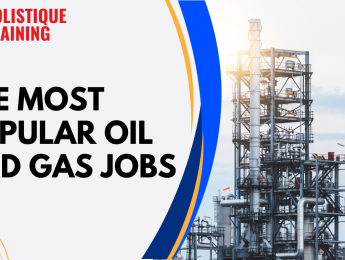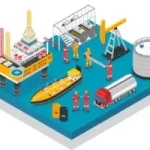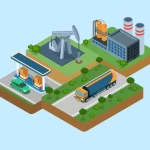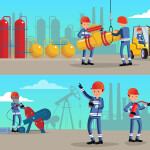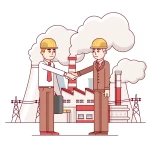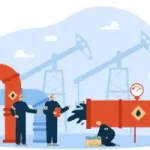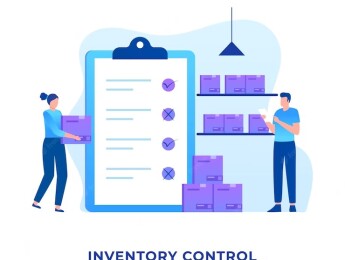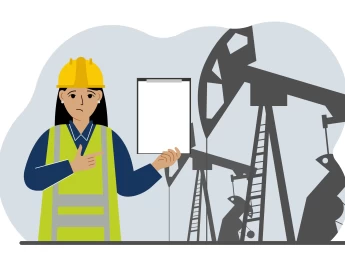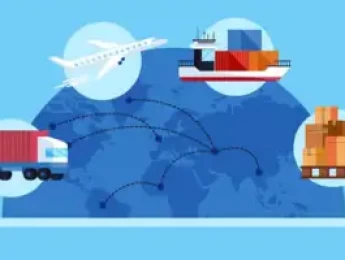- Table of Contents
- 1. Petroleum Engineer
- 2. Geologist/Geophysicist
- 3. Drilling Engineer
- 4. Reservoir Engineer
- 5. Production Engineer
- 6. Health, Safety, and Environmental (HSE) Manager
- 7. Field Service Technician
- 8. Logistics Coordinator
- 9. Pipeline Engineer
- Table:Comparison of Engineer Jobs in the Oil and Gas Industry
- Job Title
- Key Responsibilities
- Skills Required
- Work Environment
- Petroleum Engineer
- - Design extraction methods - Monitor drilling operations - Enhance production techniques - Ensure safety and efficiency
- - Engineering principles - Computer modeling - Problem-solving - Fieldwork capability
- - Offices - Laboratories - Drilling sites
- Geologist/Geophysicist
- - Conduct geological surveys - Analyze geological data - Use seismic data for subsurface modeling - Advise on drilling locations
- - Geological expertise - Software proficiency - Analytical skills - Fieldwork readiness
- - Laboratories - Offices - Field sites
- Drilling Engineer
- - Design and plan drilling operations - Supervise drilling processes - Ensure regulatory compliance - Troubleshoot operational issues
- - Technical knowledge - Leadership - Problem-solving - Field experience
- - Offices - Drilling sites
- Reservoir Engineer
- - Analyze reservoir performance - Develop enhanced oil recovery techniques - Collaborate with geologists and production engineers - Monitor and optimize production rates
- - Reservoir simulation expertise - Analytical skills - Technical knowledge - Team collaboration
- - Offices - Field environments
- Production Engineer
- - Design and optimize production systems - Manage production facilities and staff - Ensure equipment maintenance and reliability - Implement safety and environmental standards
- - Production engineering principles - Technical proficiency - Leadership - Attention to detail
- - Offices - Production facilities - Field sites
- Pipeline Engineer
- - Design pipeline systems - Oversee pipeline construction - Conduct pipeline inspections - Ensure compliance with safety and environmental standards
- - Pipeline engineering expertise - Materials science knowledge - Project management - Field experience
- - Offices - Construction sites - Maintenance facilities
- 10. Operations Manager
- Conclusion
Introduction
The oil and gas industry, a cornerstone of the global economy, fuels the energy needs of the world and drives significant technological advancements. This sector, known for its complexity and dynamic nature, offers a myriad of career opportunities for individuals with diverse skills and expertise. From the initial exploration of oil and gas reserves to the final stages of production and distribution, each phase requires a unique set of roles and responsibilities.
With the increasing demand for energy and the continuous evolution of extraction and production techniques, the industry remains a vibrant and vital field for employment. Moreover, the shift towards sustainable practices and the integration of advanced technologies further expand the scope and significance of jobs within the sector. This article delves into the most popular jobs in the oil and gas industry, shedding light on the crucial roles these professionals play, the responsibilities they shoulder, and the skills they bring to the table. Whether you are an aspiring engineer, a seasoned technician, or a specialist in health and safety, the oil and gas industry presents a wealth of opportunities to build a rewarding and impactful career.
The oil and gas industry, often referred to as the energy sector, is a global powerhouse that significantly impacts the world's economy. It provides a wide range of job opportunities, from entry-level positions to highly specialized roles, across various stages of the oil and gas supply chain. This article explores the most popular jobs in this sector, highlighting their roles, responsibilities, and the skills required.
1. Petroleum Engineer
Role and Responsibilities: Petroleum engineers are crucial to the oil and gas industry. They design and develop methods for extracting oil and gas from deposits below the Earth's surface. They also find new ways to extract oil and gas from older wells. Petroleum engineers typically work in offices, laboratories, and drilling sites.
Key Responsibilities:
- Drilling and Extraction Planning: Develop plans for drilling and extracting oil and gas efficiently and safely.
- Monitoring Operations: Oversee and monitor drilling operations, making adjustments as necessary to improve efficiency.
- Production Optimization: Work on enhancing oil and gas production techniques to maximize output.
- Safety and Efficiency: Ensure that all operations are conducted safely and efficiently, adhering to industry regulations and standards.
- Research and Development: Engage in continuous research to innovate and improve extraction methods.
Skills Required:
- Engineering Principles: A strong understanding of engineering concepts and principles.
- Technical Proficiency: Proficiency in computer modeling and simulation software.
- Analytical Skills: Excellent problem-solving and analytical abilities to troubleshoot and optimize operations.
- Fieldwork Capability: Ability to work in remote and challenging environments, often under harsh conditions.
2. Geologist/Geophysicist
Role and Responsibilities: Geologists and geophysicists study the composition, structure, and other physical aspects of the Earth. They play a pivotal role in discovering and evaluating new oil and gas reservoirs. These professionals work in various settings, including laboratories, offices, and field sites.
Key Responsibilities:
- Data Collection: Conduct surveys and collect data from rock formations using advanced tools and techniques.
- Analysis: Analyze geological data to locate and estimate the size of oil and gas deposits.
- Seismic Interpretation: Use seismic data to create models of the Earth's subsurface, aiding in the identification of potential drilling sites.
- Advisory Role: Advise drilling engineers and other stakeholders on the best locations for drilling and extraction.
Skills Required:
- Geological Expertise: Expertise in geology and geophysics, with a deep understanding of Earth's processes.
- Software Proficiency: Proficiency in using geological software for data analysis and modeling.
- Analytical Skills: Strong analytical and interpretive skills to make sense of complex data sets.
- Fieldwork Readiness: Capability and willingness to conduct fieldwork, often in remote locations.
3. Drilling Engineer
Role and Responsibilities: Drilling engineers are responsible for planning and executing drilling operations. They work closely with other engineers and field personnel to ensure the safe and efficient extraction of oil and gas. Drilling engineers spend their time between office environments and drilling sites.
Key Responsibilities:
- Designing Drilling Plans: Develop detailed plans for drilling operations, including the selection of appropriate equipment and techniques.
- Supervision: Supervise the drilling process and manage the drilling team to ensure that operations run smoothly.
- Regulatory Compliance: Ensure that all drilling activities comply with safety and environmental regulations.
- Troubleshooting: Address and resolve operational issues as they arise during the drilling process.
Skills Required:
- Technical Knowledge: In-depth knowledge of drilling techniques, equipment, and processes.
- Leadership Skills: Strong leadership and project management skills to lead teams effectively.
- Problem-Solving: Ability to work under pressure and troubleshoot issues in real-time.
- Field Experience: Experience working in challenging field environments.
4. Reservoir Engineer
Role and Responsibilities: Reservoir engineers evaluate oil and gas reserves and develop strategies to maximize recovery. They use advanced techniques to predict the behavior of oil and gas reservoirs over time. Reservoir engineers work in both office settings and field environments.
Key Responsibilities:
- Performance Analysis: Analyze reservoir performance data to predict future production and optimize recovery strategies.
- Enhanced Recovery: Develop and implement enhanced oil recovery techniques, such as water flooding or gas injection.
- Collaboration: Work closely with geologists, drilling engineers, and production engineers to ensure efficient reservoir management.
- Monitoring: Continuously monitor and optimize production rates to ensure maximum efficiency.
Skills Required:
- Simulation Expertise: Expertise in using reservoir simulation software to model reservoir behavior.
- Analytical Skills: Strong analytical and mathematical skills for interpreting complex data.
- Technical Knowledge: Knowledge of fluid mechanics and thermodynamics as they apply to reservoir engineering.
- Team Collaboration: Ability to work effectively in interdisciplinary teams.
5. Production Engineer
Role and Responsibilities: Production engineers oversee the day-to-day operations of oil and gas production facilities. They ensure that production processes are safe, efficient, and environmentally compliant. Production engineers work in various settings, including offices, production facilities, and field sites.
Key Responsibilities:
- System Design: Design and optimize production systems to maximize efficiency and output.
- Facility Management: Manage production facilities and oversee the work of personnel involved in production.
- Maintenance: Ensure that all equipment is maintained and reliable to prevent production downtime.
- Safety Standards: Implement and enforce safety and environmental standards to protect workers and the environment.
Skills Required:
- Engineering Principles: Strong understanding of production engineering principles and practices.
- Technical Proficiency: Proficiency in production optimization software and tools.
- Leadership Skills: Leadership and communication skills to manage teams and coordinate activities.
- Attention to Detail: High attention to detail to identify and resolve issues promptly.
6. Health, Safety, and Environmental (HSE) Manager
Role and Responsibilities: HSE managers are responsible for ensuring that all operations in the oil and gas industry comply with health, safety, and environmental regulations. They play a critical role in protecting workers and the environment. HSE managers work in office settings, production facilities, and field locations.
Key Responsibilities:
- Policy Development: Develop and implement HSE policies and procedures to ensure compliance with regulations.
- Risk Assessments: Conduct risk assessments and safety audits to identify potential hazards and implement corrective actions.
- Training: Train employees on safety practices and procedures to prevent accidents and injuries.
- Incident Investigation: Investigate incidents and accidents to determine root causes and implement preventive measures.
Skills Required:
- Regulatory Knowledge: In-depth knowledge of HSE regulations and industry standards.
- Organizational Skills: Strong organizational and leadership skills to manage HSE programs effectively.
- Investigation Skills: Ability to conduct thorough investigations and audits to identify and address issues.
- Communication Skills: Effective communication and training skills to promote a culture of safety.
7. Field Service Technician
Role and Responsibilities: Field service technicians provide on-site support and maintenance for oil and gas equipment. They are essential for ensuring the smooth operation of drilling and production activities. Field service technicians often work in challenging and remote locations.
Key Responsibilities:
- Equipment Maintenance: Install, maintain, and repair equipment used in drilling and production operations.
- Troubleshooting: Diagnose and troubleshoot mechanical and electrical issues to minimize downtime.
- Inspections: Conduct regular inspections and preventive maintenance to ensure equipment reliability.
- Technical Support: Provide technical support to field personnel, ensuring they can operate equipment safely and efficiently.
Skills Required:
- Technical Expertise: Technical expertise in mechanical and electrical systems relevant to oil and gas operations.
- Problem-Solving: Strong problem-solving and diagnostic skills to address issues promptly.
- Independence: Ability to work independently and make decisions in remote and challenging environments.
- Communication Skills: Good communication and interpersonal skills to collaborate with field personnel.
8. Logistics Coordinator
Role and Responsibilities: Logistics coordinators manage the supply chain and logistics operations in the oil and gas industry. They ensure the timely and efficient movement of equipment, materials, and personnel. Logistics coordinators work in office settings but may also spend time at production sites.
Key Responsibilities:
- Transportation Planning: Plan and coordinate the transportation of goods and equipment to and from production sites.
- Inventory Management: Manage inventory levels to ensure that necessary materials are available when needed.
- Warehousing: Oversee warehousing operations to ensure efficient storage and retrieval of materials.
- Compliance: Ensure that all logistics activities comply with relevant regulations and standards.
Skills Required:
- Organizational Skills: Strong organizational and planning skills to manage complex logistics operations.
- Software Proficiency: Proficiency in logistics and supply chain management software.
- Multitasking: Ability to manage multiple tasks and prioritize effectively to meet deadlines.
- Communication Skills: Effective communication and negotiation skills to coordinate with suppliers and stakeholders.
9. Pipeline Engineer
Role and Responsibilities: Pipeline engineers design, construct, and maintain pipelines used for transporting oil and gas. They ensure the integrity and safety of pipeline systems. Pipeline engineers work in various settings, including offices, construction sites, and maintenance facilities.
Key Responsibilities:
- System Design: Design pipeline systems, selecting appropriate materials and construction methods.
- Construction Oversight: Oversee the construction and installation of pipelines to ensure they meet design specifications.
- Maintenance: Conduct regular inspections and integrity assessments to ensure pipeline safety and reliability.
- Regulatory Compliance: Ensure that all pipeline activities comply with safety and environmental standards.
Skills Required:
- Engineering Expertise: Expertise in pipeline engineering principles and practices.
- Materials Science: Knowledge of materials science and corrosion prevention techniques.
- Project Management: Strong project management skills to oversee construction and maintenance projects.
- Field Experience: Ability to work in diverse and challenging environments, often requiring fieldwork.
Table: Comparison of Engineer Jobs in the Oil and Gas Industry
Job Title | Key Responsibilities | Skills Required | Work Environment |
Petroleum Engineer | - Design extraction methods - Monitor drilling operations - Enhance production techniques - Ensure safety and efficiency | - Engineering principles - Computer modeling - Problem-solving - Fieldwork capability | - Offices - Laboratories - Drilling sites |
Geologist/Geophysicist | - Conduct geological surveys - Analyze geological data - Use seismic data for subsurface modeling - Advise on drilling locations | - Geological expertise - Software proficiency - Analytical skills - Fieldwork readiness | - Laboratories - Offices - Field sites |
Drilling Engineer | - Design and plan drilling operations - Supervise drilling processes - Ensure regulatory compliance - Troubleshoot operational issues | - Technical knowledge - Leadership - Problem-solving - Field experience | - Offices - Drilling sites |
Reservoir Engineer | - Analyze reservoir performance - Develop enhanced oil recovery techniques - Collaborate with geologists and production engineers - Monitor and optimize production rates | - Reservoir simulation expertise - Analytical skills - Technical knowledge - Team collaboration | - Offices - Field environments |
Production Engineer | - Design and optimize production systems - Manage production facilities and staff - Ensure equipment maintenance and reliability - Implement safety and environmental standards | - Production engineering principles - Technical proficiency - Leadership - Attention to detail | - Offices - Production facilities - Field sites |
Pipeline Engineer | - Design pipeline systems - Oversee pipeline construction - Conduct pipeline inspections - Ensure compliance with safety and environmental standards | - Pipeline engineering expertise - Materials science knowledge - Project management - Field experience | - Offices - Construction sites - Maintenance facilities |
10. Operations Manager
Role and Responsibilities: Operations managers oversee the overall operations of oil and gas facilities. They ensure that production targets are met while maintaining safety and efficiency. Operations managers work in various settings, including offices, production facilities, and field sites.
Key Responsibilities:
- Daily Operations: Manage daily operations and production schedules to ensure efficient and continuous production.
- Staff Supervision: Supervise staff and coordinate activities to meet production goals.
- Process Improvement: Implement process improvements to enhance efficiency and reduce costs.
- Regulatory Compliance: Ensure compliance with all relevant regulations and standards to maintain safety and environmental integrity.
Skills Required:
- Leadership Skills: Strong leadership and management skills to lead teams and oversee operations effectively.
- Operational Knowledge: In-depth knowledge of operational processes and best practices in the oil and gas industry.
- Problem-Solving: Ability to handle complex and high-pressure situations, making informed decisions quickly.
- Communication Skills: Effective communication and decision-making skills to coordinate with various stakeholders.
Conclusion
The oil and gas industry offers a diverse range of career opportunities for professionals with various skills and expertise. From engineering and geology to logistics and safety management, the sector provides challenging and rewarding roles that contribute to the global energy supply. As the industry continues to evolve with advancements in technology and a growing focus on sustainability, the demand for skilled professionals in these popular jobs remains robust. Whether you are an experienced professional or a newcomer to the industry, the oil and gas sector presents numerous pathways for a dynamic and impactful career.
The roles outlined in this article represent just a fraction of the opportunities available in the oil and gas industry. Each position requires a unique set of skills and expertise, reflecting the complexity and diversity of this vital sector. As the industry faces new challenges and opportunities, such as the transition to cleaner energy sources and the integration of digital technologies, the landscape of oil and gas jobs will continue to evolve, offering new and exciting career prospects for those ready to meet the future of energy.


